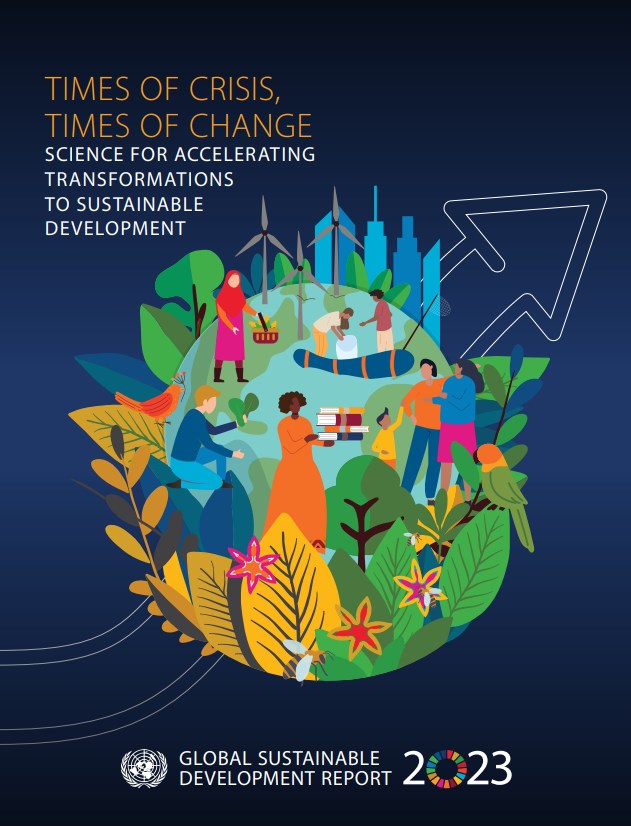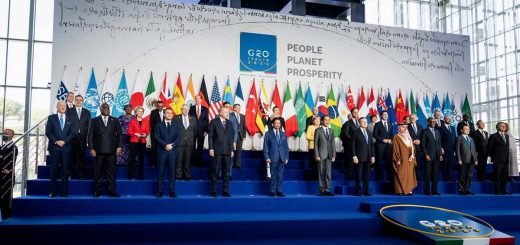How Science can be key to fast-tracking the SDGs?
Source – Global Sustainable Development Report 2023
United Nations has released the 2023 Global Sustainable Development Report (GSDR) underscores a critical point: we’re at a juncture where merely making gradual, isolated changes won’t suffice to reach the Sustainable Development Goals (SDGs) in the remaining seven years. What’s required is a coordinated effort, led by strong political leadership and grounded in scientific insights. This collective endeavor must be inclusive, ensuring that no country, society, or individual is left behind. The report serves as a call to action, urging everyone to pursue transformations with the urgency required to expedite progress toward the SDGs.
This article will examine important findings and messages presented in the report.
Context at the halfway point to 2030
At the midpoint toward 2030, progress on the Sustainable Development Goals (SDGs) is seriously off course, with only two out of 36 targets on track and eight worsening. Delays and setbacks in areas like climate action, poverty eradication, and gender equality have created the risk of prolonged crises. These challenges are interconnected, offering opportunities for integrated recovery strategies.
To address this, leaders must focus on long-term trends while dealing with immediate crises, including climate change and inequality. Although awareness and commitments to the SDGs are rising, they need to translate into tangible action, with the integration of SDGs into decision-making, prioritized financing, and robust accountability mechanisms being essential for success.
Evidence to inform the way forward
The report emphasizes the interconnectedness of the Sustainable Development Goals (SDGs) and the need for context-specific analysis. It underscores the importance of managing trade-offs and leveraging synergies across borders, particularly for high-impact SDGs. The report also highlights the necessity of addressing barriers for marginalized groups and advocates for international cooperation. Scenario studies suggest that transformative actions aligned with national priorities can expedite SDG achievement, but institutional reforms and capacity building are crucial to overcoming obstacles.
The report also outlines the importance of supporting innovation, shaping markets, and institutionalizing sustainable practices. Resistance to change should be managed through compensation and just transitions. Science plays a vital role in addressing context-specific SDG challenges, necessitating increased support for scientific efforts in low- and middle-income countries. The report calls for a comprehensive, science-driven approach to SDG achievement, focusing on trade-offs and synergies while addressing impediments inclusively and equitably.
Calls to action for transformations
- Urgent Need for Science-Driven Transformation: The report highlights the urgency of science-based approaches to achieve the Sustainable Development Goals (SDGs).
- SDG Transformation Framework: It calls for the establishment of an SDG Transformation Framework consisting of six key elements, including science-based national plans, local and industry-specific planning, fiscal initiatives, data and science tools, partnerships for better science-policy collaboration, and enhanced accountability measures.
- Capacity Building: The report emphasizes building essential capacities at individual, institutional, and network levels in all countries, with a focus on horizontal and vertical coordination to leverage SDG synergies and minimize trade-offs.
- Activation of Six Entry Points: Governments and stakeholders should activate synergies within six entry points (human well-being and capabilities, sustainable and just economies, food systems and nutrition patterns, energy decarbonization and universal access, urban and peri-urban development, and the global environmental commons), addressing systemic effects and impediments while promoting locally relevant and integrated implementation.
- Coordinated International Efforts: The international community must coordinate actions to counter disruptive trends and promote inclusivity, gender equality, and open access to scientific research and data, thus harnessing the benefits of science to accelerate SDG progress.
The report delivers a compelling message about the urgent need for science-driven transformations to ensure the realization of the Sustainable Development Goals (SDGs). It underscores the interconnected nature of these goals and the importance of comprehensive national plans, capacity building, and international collaboration. Activating synergies across entry points and addressing systemic challenges, while ensuring inclusivity, gender equality, and open access to science, can expedite SDG progress and contribute to a more sustainable and equitable future.
Read the full report here!



